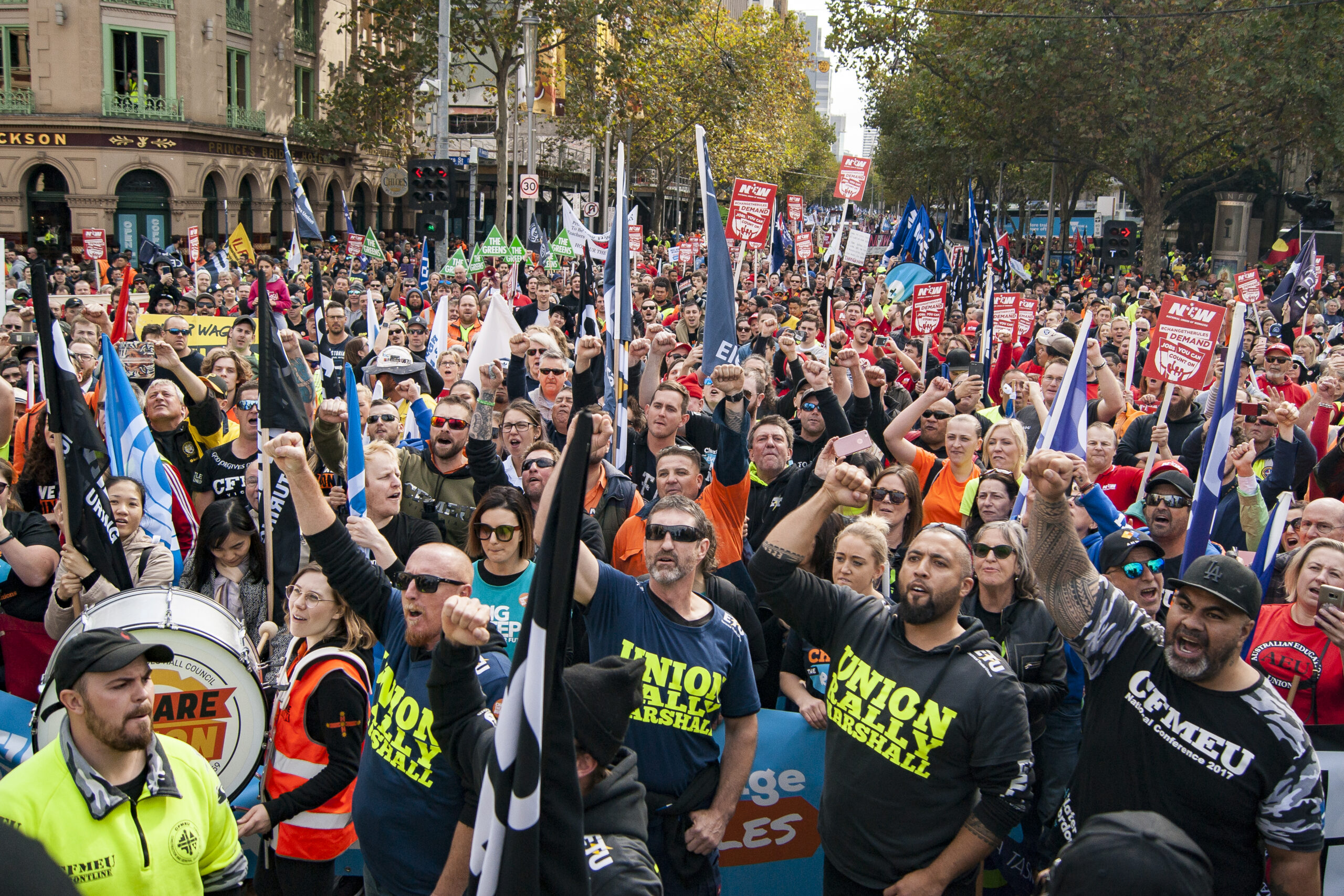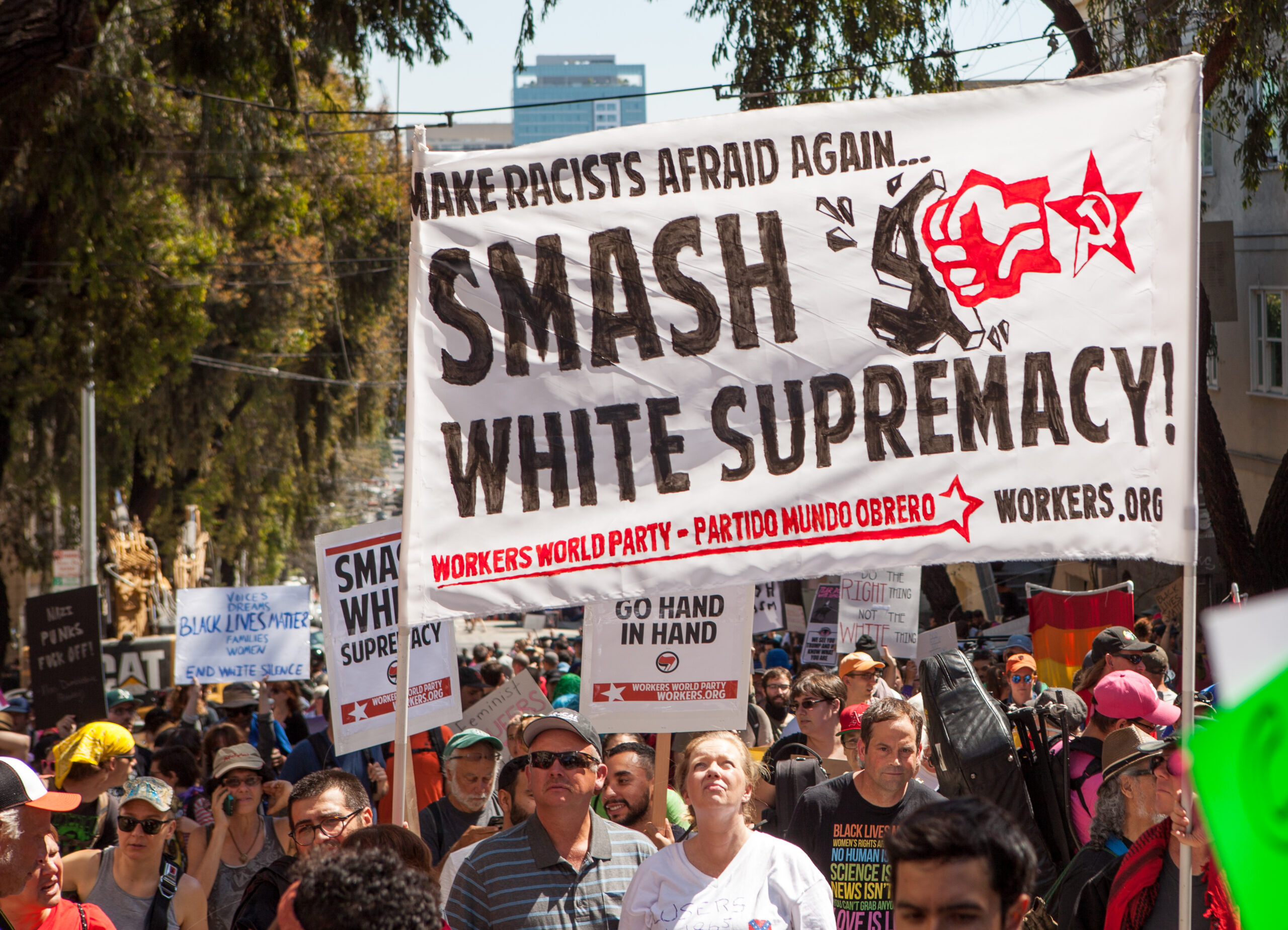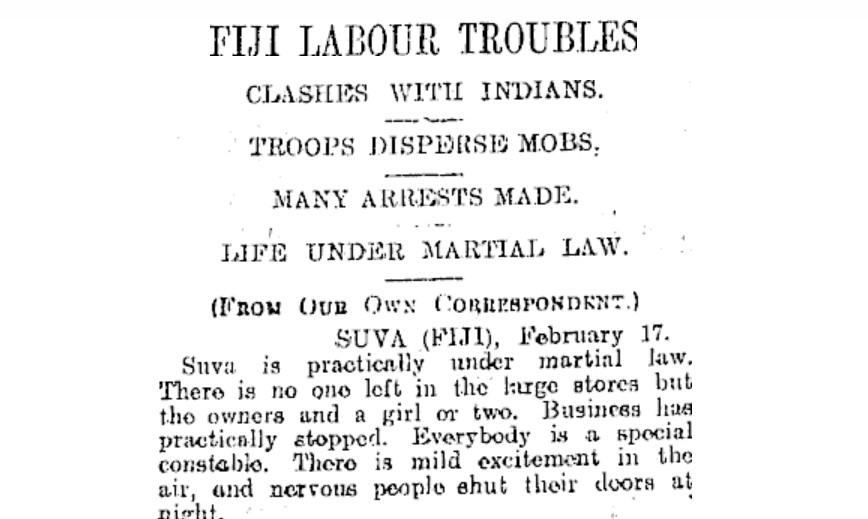Now
It is more popular and socially acceptable than it has been in many decades to describe yourself as an anti-capitalist. It is not hard to see why. As the crises pile up – from climate disasters, to unmitigated pandemics, to live-streamed genocides – people come to agree that the capitalist system of production, which ties all of these crises together and places profit over human need, must fall. But even as anti-capitalist sentiment sees resurgence, anti-capitalist power grows much more slowly.
Them
On the other side, the ruling capitalist class is as powerful and all-encompassing as ever. They are robustly organised: through their multinational corporations, international trade alliances, exclusive clubs, and lobby organisations; through their military and police forces that establish a monopoly on violence; through media, think-tanks, and academic institutions that ensure that their ideas remain the dominant ideology of society.
While individual capitalists can compete or disagree over how best to exploit the working class and maintain the steady flow of profit, they understand and agree upon their class interests and collaborate to protect those interests from threats.
A system this strong cannot be meaningfully confronted by individuals with good ideas. So, what will it take to bring this system down?
Power
When lone workers confront the capitalists’ authority, they discover their relative powerlessness against institutions and systems. But when workers pool their power and threaten to withhold their labour to shut production down, they can even the playing field with the bosses. The system simply cannot function without the working class, whose labour generates the excess value that the capitalist takes as profit. This critical position is where workers realise their collective power within the capitalist system.
Though unions bargaining for better working conditions are a step forward, they are a defensive tool that fights the effects of capitalism rather than capitalism itself. To achieve a full and final defeat of global capitalism, from which it cannot return, the international working class must go further, grinding the capitalist economy to a halt and seizing its productive forces for democratic redirection toward human need. For this, the working class will need consciousness, political clarity, and will, which can only develop through struggle.
Reformist political parties, NGOs and most trade unions, though often well-meaning, do not have this revolutionary end in mind and can act to bolster capitalism by diverting struggle from this necessary path.
This is where we, as revolutionary socialists, can have an outsized impact. Not as scattered individuals preaching the good word of charitable relations but as a party of radicals whose ideas and politics evolve through active participation in working-class struggle. A party that aims to build these mass movements and push them to become a force strong enough to defeat the capitalist class.
Their side is organised. Ours must be too.
Structure
Neoliberalism’s ideological victory and the corresponding lull in left-wing politics have made it difficult for people to conceive of an organisational structure that isn’t tyrannical by default. The results have been predictably unfortunate.
Recent inspirational but horizontal uprisings have resulted in worse repression than before, like movements of the Arab Spring, or complete co-option and diffusion, like the Black Lives Matter movement. Without structure and precise strategies, they could not sustain themselves toward total victory and against repression or co-option by their ruling class foes. Many prominent figures within those movements echo this sentiment and lament the possibilities had they been more organised. This of course does not make those movements wrong – any uptick in protest and resistance is a welcome development that needs to be built on.
Similarly, and especially in the West, we see activists tending to coalesce around single-issue campaigns as those issues arise. Horizontal, leaderless organisations are formed with a roar of energy, but members burn out from inefficient decision-making and delegation, and ideological differences cannot be addressed and overcome. The groups dissolve and pop up again to coalesce around the next issue.
Organisation
Thus, this is the case for the revolutionary socialist organisation.
Through democratic centralism every member debates each issue, votes democratically on each issue, and, once a decision is reached, works together to enact that decision. Delegates are voted into specific positions and are immediately recallable by a simple majority.
Yes, the organisation is dedicated to fighting all of capitalism’s organs and oppressions, but without ever losing sight of the head of the beast. The organisation builds momentum through struggle so that we can react more quickly to political developments or even be proactive and take the front foot – to take necessary action and lay out a coherent path forward, and to reject reaction, co-option, or symbolic gestures from the forces of capitalism that seek to divert our energy and resources.
“Without a guiding organisation, the energy of the masses would dissipate like steam not enclosed in a piston-box,” wrote Russian revolutionary Leon Trotsky, “but nevertheless what moves things is not the piston or the box, but the steam.”
Our Role
In summary: our job as revolutionary socialists is to build a party of politically conscious and militant workers and students dedicated to the socialist project. We are to serve as the memory of the working class – to learn lessons from history and tools developed by generations of Marxists, to synthesise these learnings for the present moment, and to update them as we advance and develop. We do not dictate to the masses but are comrades in struggle and active participants in today’s movements. We influence and are influenced by these movements. We try to move these struggles as far as they can go, spreading the need for a socialist alternative to wider layers of workers, students and the oppressed along the way.
And from here?
In relatively stable times, people’s ideas are overwhelmingly the ideas of the ruling class. Today, most people view profit-driven markets, individualism, high rents, long workweeks, international warfare, etc as “normal” or even “common sense”. Opposition to capitalism may have entered the public sphere, but its logical solution – revolutionary socialism – remains a fringe political project. This is the reality that we face and the one that we must work within.
That said, capitalism is a system of crisis, and once these crises reach a tipping point, this ideological dominance can become unstuck. As a new world struggles to be born, workers en masse grasp for alternatives to the status quo. We must be ready to win these masses over to the socialist alternative, for we can be sure that the reformists and fascists will have their arguments ready too. This is why it is crucial that we equip ourselves with those answers in the “quiet” times while building, practising and stress-testing our ideas and democratic structures.
Join us
There are decades where nothing happens; and there are weeks where decades happen. The work begins now to best prepare for those weeks, if not to help expedite them. If you want to build the socialist alternative, join the International Socialist Organisation of Aotearoa.









